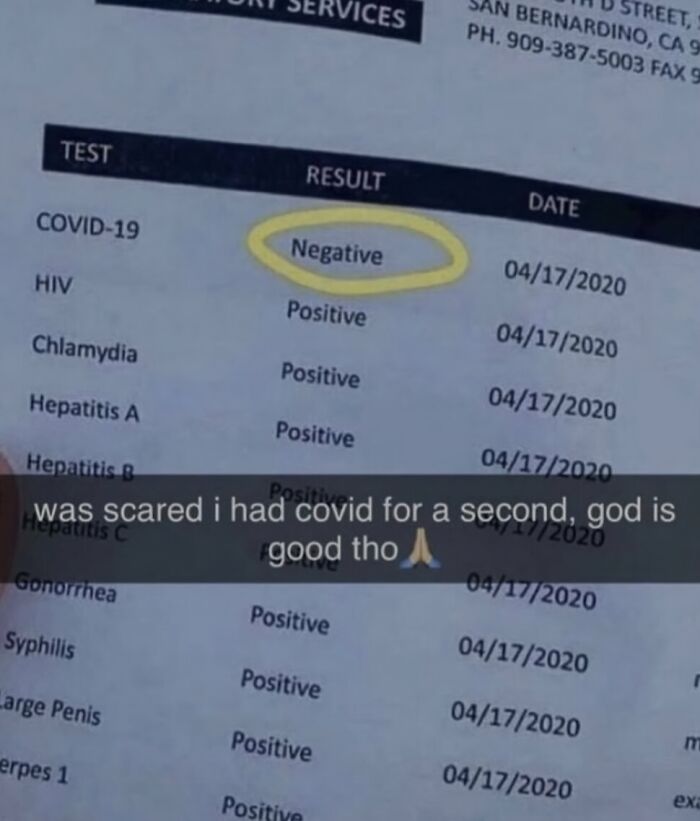[ad_1]
I’m sure you’ve noticed that the German language is full of great words. It’s an elegant system that allows to convey even complex concepts in one word. Take schadenfreude, for example. This expression describes the pleasure or satisfaction when someone else goes through a failure, suffering, or humiliation. Such a spark of delight might appear when a rival doesn’t get the promotion they expected or while watching fail compilation videos. Feeling this way occasionally doesn’t make people bad. However, the everything in moderation rule applies here heavily.
For your schadenfreude fix, we have a list full of hilarious fails and more, courtesy of the ‘Faillgram’ Instagram account. Scroll down for some harmless fun and don’t forget to upvote the ones that made you feel bad for giggling.
#1

Image credits: Jayysen_
#2

Image credits: DailyLoud
#3

Image credits: faillgram
If you ever felt guilty about feeling satisfaction when someone else messed up, scientists say that you don’t have to beat yourself up too much about it. Schadenfreude is a process that became deeply ingrained in our brains due to millions of years of evolution.
Humans are extremely social creatures that are very aware of other people, their relationships, and their place in the hierarchy of social status. Even subconsciously, we want to be respected and liked, which pushes us to find ways to improve our place in society.
#4

Image credits: faillgram
#5

Image credits: faillgram
#6

Image credits: faillgram
It can feel good to raise our social status, whereas having a low ranking in the hierarchy can feel stressful and even negatively affect a person’s well-being.
Humans can improve their social standing in various ways, like being highly athletic, succeeding in their careers, having the latest technology, or buying the biggest house.
Another way to rise in social ranking that is associated with the previously mentioned schadenfreude is to lower other people’s social status. That’s why when we see other people mess up, we can feel a spark of delight, which the German word is all about.
#7

Image credits: faillgram
#8

Image credits: faillgram
#9

Image credits: faillgram
“If you look at the very essence of human beings, as hunter-gatherers we determine our sense of place and sense of security in the world by comparing ourselves to other human beings,” further explains Paul Hokemeyer, PhD, psychotherapist and author of Fragile Power: Why Having Everything is Never Enough. “Having a competitive edge on other human beings is instinctual.”
#10

Image credits: faillgram
#11

Image credits: faillgram
#12

Image credits: faillgram
Some people may even use it as a coping mechanism, as it can provide control and dominance in troubling times.
Schadenfreude also activates the brain’s reward centers, which means that when we see someone fail, we get a hit of dopamine that can keep us coming back for more. “When we get hooked into our limbic system, there is an addictive quality to it,” Hokemeyer says. “We become hyperactive, our prefrontal cortex shuts down, and we’re acting on our very primitive emotions.”
#13

Image credits: mami_manii
#14

Image credits: faillgram
#15

Image credits: faillgram
When this happens, it can pose a threat to our mental health. Constantly getting a dopamine hit from other’s misfortune can hinder our ability to sympathize with others, which might cause harm to our emotional intelligence, healthy relationships, personal goals, and aspirations. It can make people feel less connected, which has a severe impact on their mental and physical health.
#16

Image credits: faillgram
#17

Image credits: faillgram
#18

Image credits: faillgram
Social media is linked to a higher use of this coping strategy. The “one-upping” that is constantly going on on social media platforms is making individuals more reliant on the feeling of schadenfreude to boost their confidence and self-worth.
#19

Image credits: faillgram
#20

Image credits: faillgram
#21

Image credits: faillgram
Occasionally partaking in schadenfreude doesn’t make a person bad but there are healthier ways to cope that result in more sustainable and long-lasting benefits. Neuropsychologist Judy Ho, PhD, suggests sharing such feelings with a trustworthy person. “There’s a self-fulfilling prophecy here where you think you’re the only person who does this and start to feel ashamed, so you isolate and do more of it,” Ho says. “Open up the conversation. This is a universal thing.”
#22

Image credits: faillgram
#23

Image credits: faillgram
#24

Image credits: faillgram
Additionally, Ho advises taking social media breaks and practicing gratitude and mindfulness. Deriving joy in healthier ways can be as simple as noting what you’re grateful for or making a list of things you enjoy. When schadenfreude tries to come out, pull out a compilation of activities that spark joy to counteract it.
#25

Image credits: faillgram
#26

Image credits: faillgram
#27

Image credits: faillgram
#28

Image credits: faillgram
#29

Image credits: faillgram
#30

Image credits: faillgram
#31

Image credits: faillgram
#32

Image credits: faillgram
#33

Image credits: faillgram
#34

Image credits: faillgram
#35

Image credits: faillgram
#36

Image credits: faillgram
#37

Image credits: faillgram
#38

Image credits: faillgram
#39

Image credits: faillgram
#40

Image credits: faillgram
#41

Image credits: faillgram
#42

Image credits: faillgram
#43

Image credits: faillgram
#44

Image credits: faillgram
#45

Image credits: faillgram
#46

Image credits: faillgram
#47

Image credits: faillgram
#48

Image credits: faillgram
#49

Image credits: faillgram
#50

Image credits: faillgram
#51

Image credits: faillgram
#52

Image credits: faillgram
#53

Image credits: faillgram
#54

Image credits: faillgram
#55

Image credits: faillgram
#56

Image credits: faillgram
#57

Image credits: faillgram
#58

Image credits: faillgram
#59

Image credits: faillgram
#60

Image credits: faillgram
#61

Image credits: memerzify
#62

Image credits: memerats
#63

Image credits: faillgram
#64

Image credits: faillgram
#65

Image credits: faillgram
#66

Image credits: faillgram
#67

Image credits: faillgram
#68

Image credits: faillgram
#69

Image credits: faillgram
#70

Image credits: faillgram
#71

Image credits: faillgram
#72

Image credits: faillgram
#73

Image credits: faillgram
#74

Image credits: faillgram
[ad_2]
Source link






















